While there are some low-rated Best Picture nominees throughout the history of the Academy Awards, the International Feature Film - formerly known as Foreign Feature Film - category does not have as many films with bad ratings in its count. Still, there are some movies that perform less well than others.
RELATED: The Oscars: 5 Best Picture Winners That Aged Perfectly (& 5 That Did Not)
Here are 10 lowest International Feature Film winners, according to Rotten Tomatoes.
10 Departures (2009) - 80%

Receiving mixed but largely positive reviews, Departures still became the winner of the Academy Award for Best Foreign Language Film. It was also nominated and won numerous awards while the Japanese reception was warmer than the international one (some even considered it a "turning point" in director Yojiro Takita's career).
The film tells the story of a young man who returns to his hometown after he fails as a cellist. He finds a job as a nokanshi, a traditional Japanese ritual mortician. Though he now has to stand up to prejudice, including that from his wife, because of the social taboos connected to his work, he manages to recover his connections through the beauty of what he does.
9 Life Is Beautiful (1997) - 80%
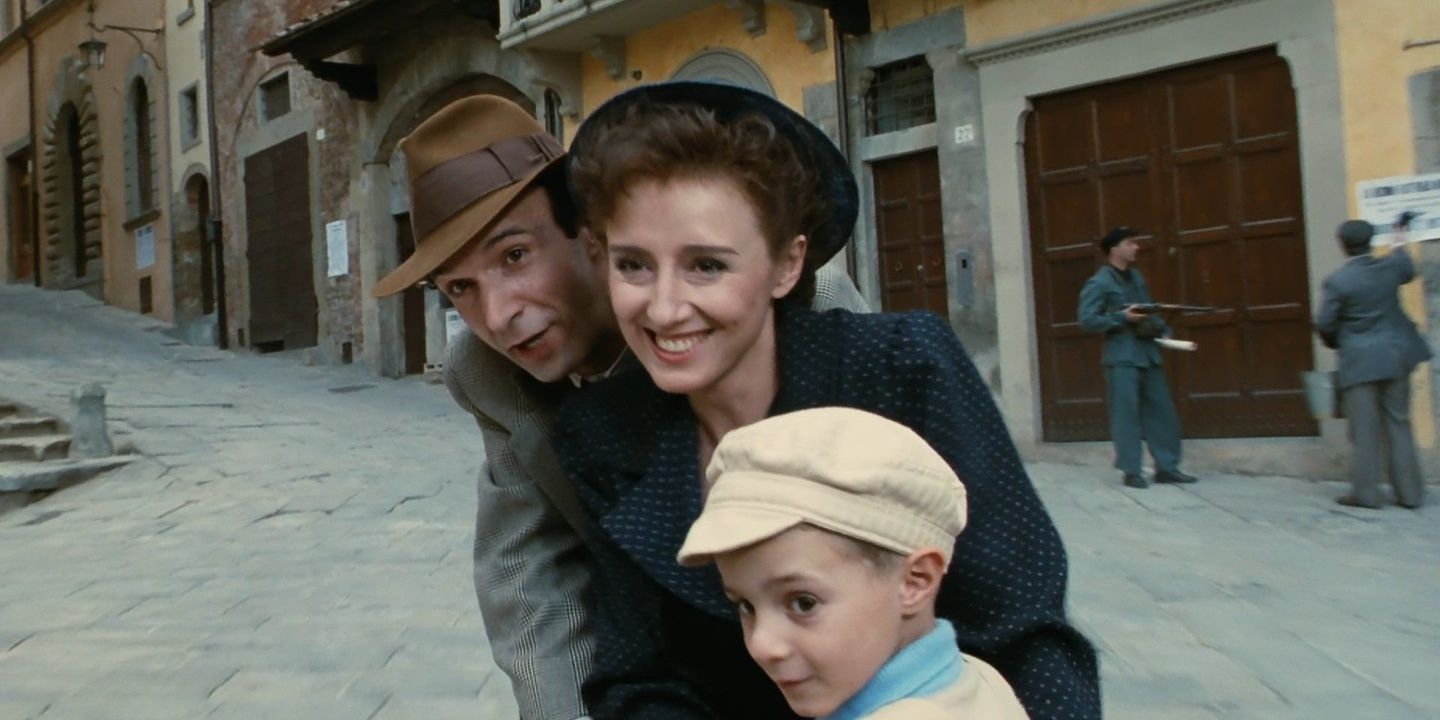
Also known under its original Italian title La vita e bella, Life Is Beautiful was nominated in seven categories at the Academy Awards (including Best Picture) and won three of them: Best Foreign Language Film, Best Actor, and Best Original Score.
Partially inspired by Rubino Romeo Salmoni's book In the End, I Beat Hitler, the film follows Guido Orefice who is a Jewish Italian bookshop owner. With the help of his imagination, he helps his son cope with the horrors of staying in a Nazi concentration camp. Eventually, it became one of the highest-grossing non-English-language movies of all time.
8 Mediterraneo (1991) - 79%
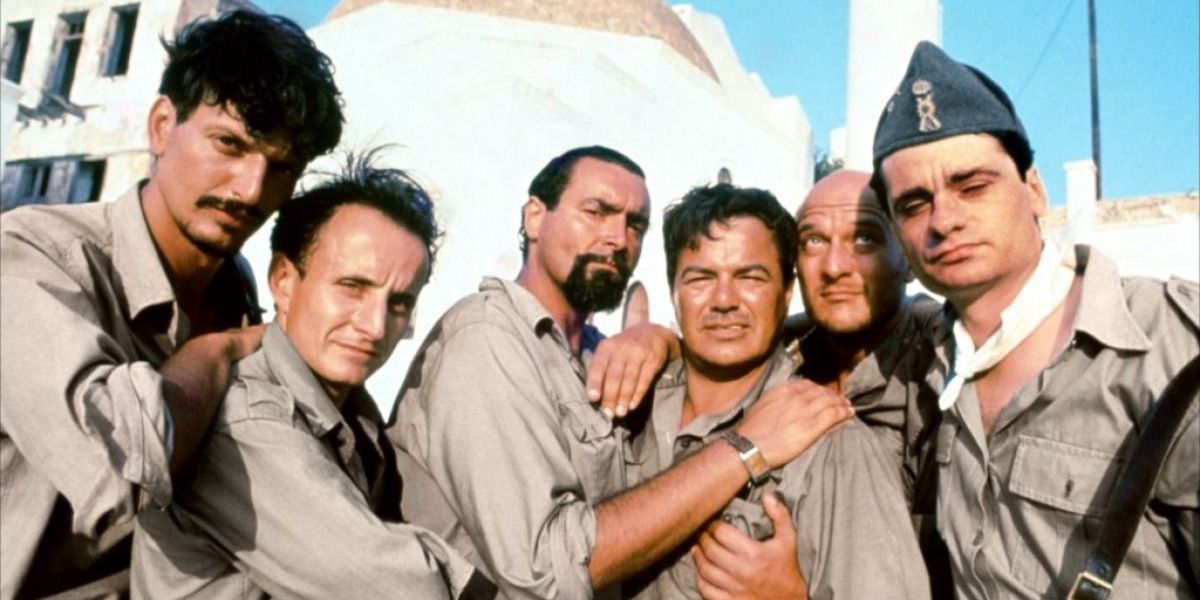
At the time of its release, Mediterraneo became the highest-grossing non-English-language film in the U.S. Back in the day, it was criticized for its portrayal of the Royal Italian Army and its actions during World War II, but that didn't affect the commercial performance of the movie much.
This war comedy-drama is set in 1941 during World War II and follows a group of Italian soldiers who are stranded on a Greek island and are left behind by the war. Though it was a critical and commercial success, some critics claimed that they walked out of the theater and never wanted to watch the film ever again - even after it won an Oscar.
7 In A Better World (2010) - 78%

You might know the lead actor of In A Better World from the Netflix series Sex Education where he, Mikael Persbrandt, plays Jakob Nyman, the father of the main character's girlfriend. It won the Best Foreign Film award both at the Academy Awards and at the Golden Globes in 2011.
The main character is a Swedish doctor who spends his life in two main locations: his hometown in Denmark and a Sudanese refugee camp. The film tackles difficult existential and human themes while Mikael Persbrandt's performance was praised and he was even called Scandinavia's "most charismatic actor."
6 Mephisto (1981) - 75%

Based on the book of the same name by Klaus Mann, Mephisto is the first Hungarian film to win the Academy Award for Best Foreign Film along with being one of the only two Hungarian films to win the award (the other one being 2016's Son of Saul).
The story follows a German stage actor who finds unexpected success as he performs in a Faustian play as Nazis take control in pre-WWII Germany. While his friends keep fleeing the country, he remains where he is and continues performing in the theater.
5 A Man and a Woman (1966) - 75%
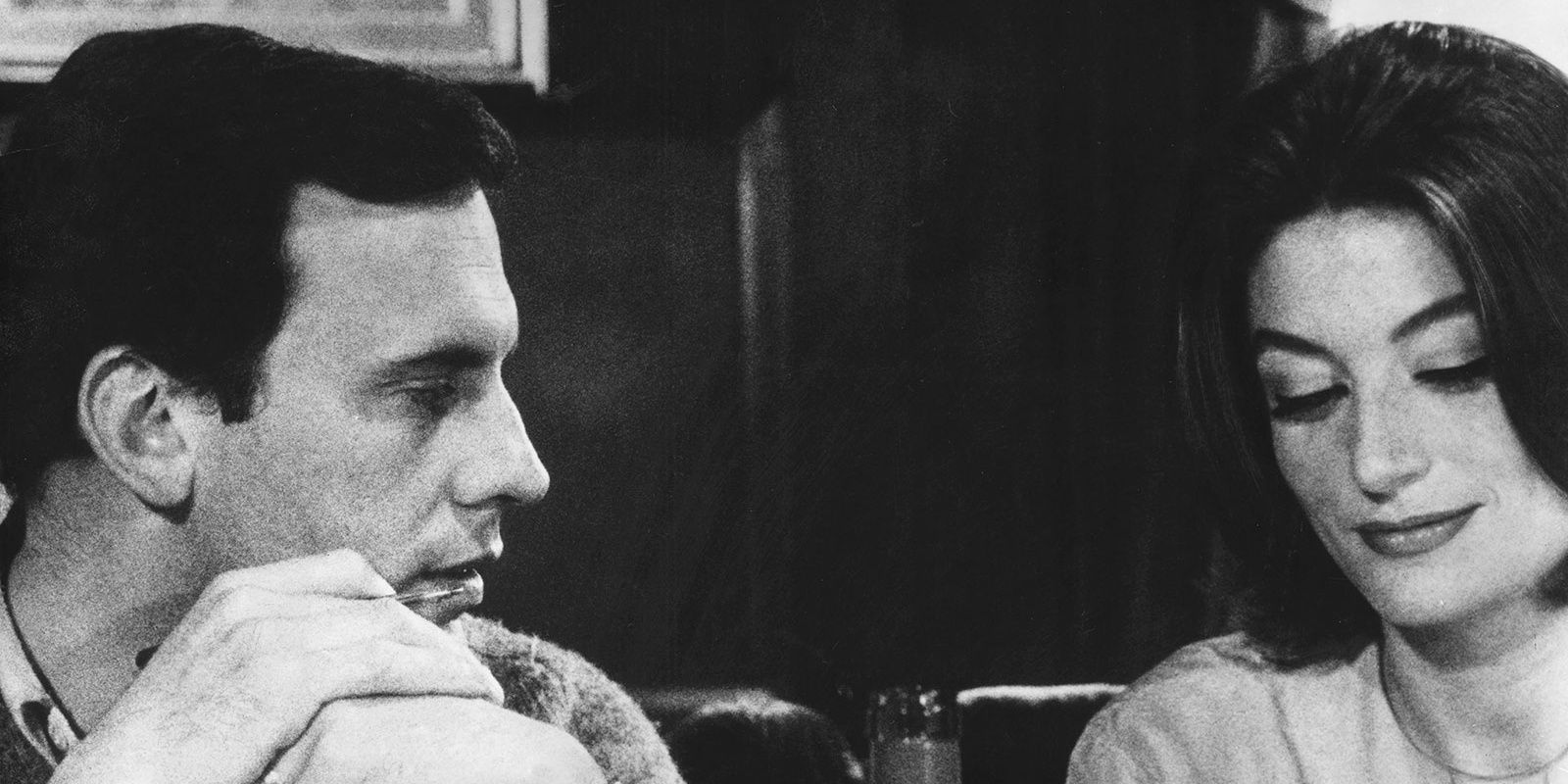
Along with winning the Academy Award for Best Foreign Picture, the 1966 French film A Man and a Woman also won the Academy Award for Best Original Screenplay, two Golden Globes (Best Foreign Picture, Best Actress - Drama), and Palme d'Or at the 1966 Cannes Film Festival.
The film is not only remarkable for its story, but also for its score and for its cinematography. We follow a young widow and widower who meet at their children's boarding school and whose relationship is complicated by the memories of their deceased spouses.
4 Dersu Uzala (1975) - 73%
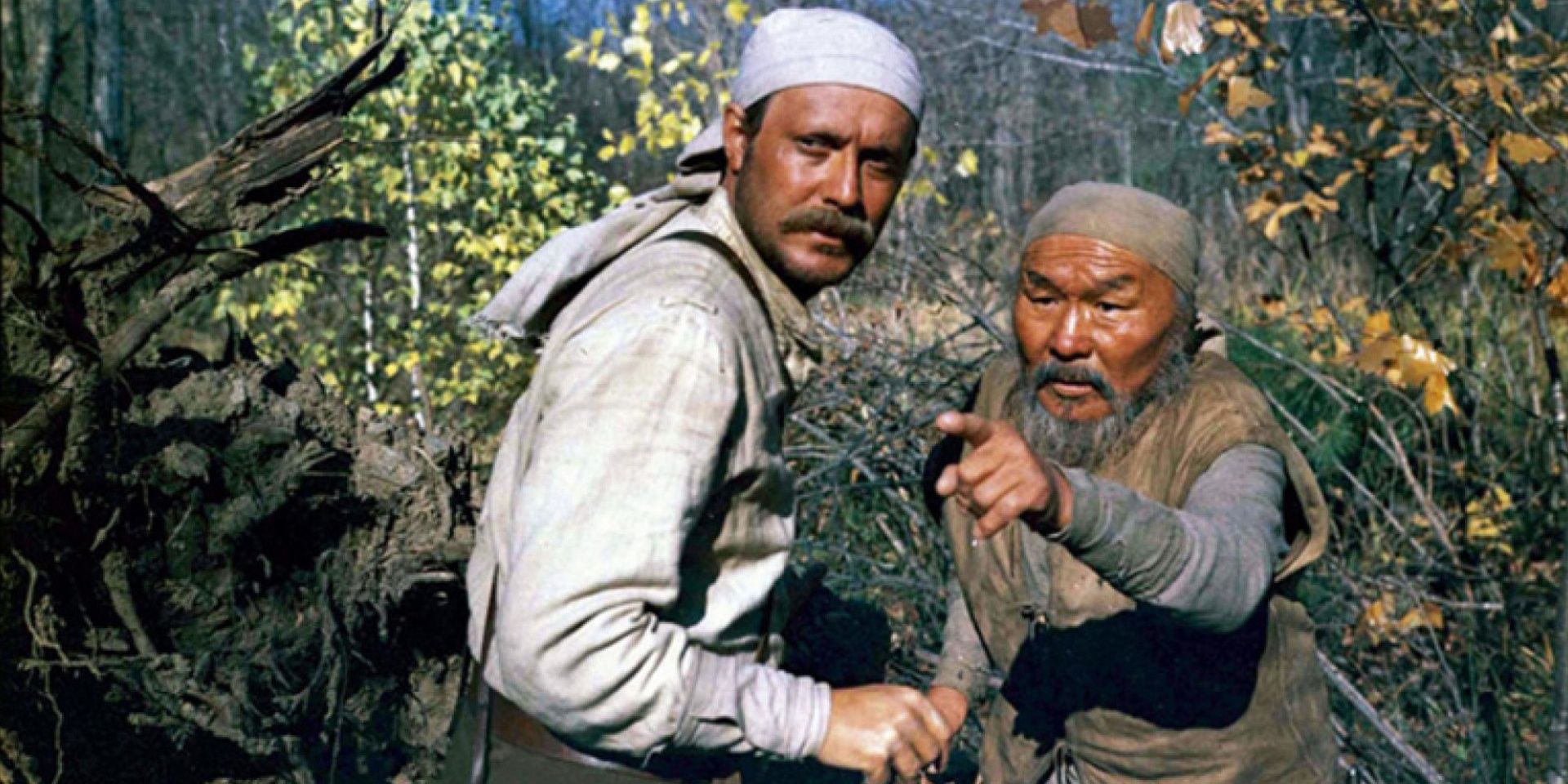
Based on the 1923 memoir of the same name by Russian explorer Vladimir Arsenyev, Dersu Uzala is a co-production from the Soviet Union and Japan with Akira Kurosawa directing and co-writing the screenplay. The film is about the explorer and his expeditions during the early 20th century for the exploration of the Sikhote-Alin region in Russia.
Allegedly, Kurosawa knew of the book for a long time and wanted to adapt it way back in the 1930s, but realized that it would have to be shot in the locations where everything happened. In 1971, Kurosawa tried to commit suicide after the failure of his film Dodes'ka-den, but a year later, the producer of the picture was approached by the Soviet studio Mosfilm for Kurosawa to adapt the book. The rest was history.
3 Indochine (1992) - 72%
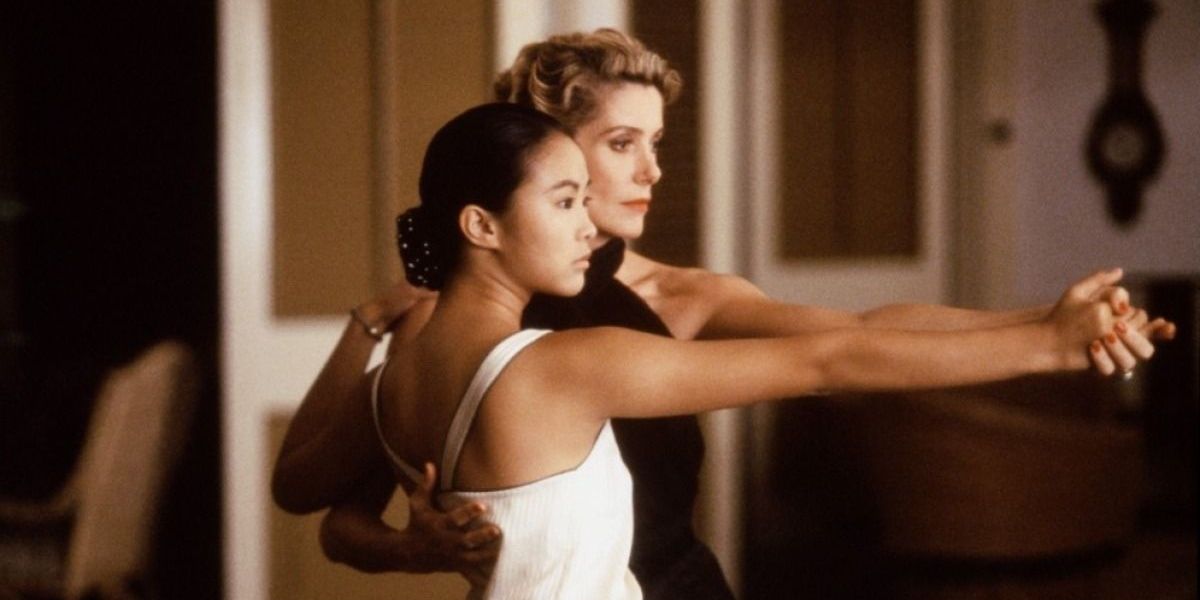
Along with winning the Academy Award for Best Foreign Picture, the lead actress of Indochine Catherine Deneuve also received a nomination in the Best Actress category while the film also won the Best Foreign Picture at that year's Golden Globes.
Set in French Indochina during the 1930s-1950s, Indochine tells the story of a woman named Eliane Devries who is a French plantation owner. She has an adopted Vietnamese daughter Camille. As the story progresses, we see the rising Vietnamese nationalist movement unfold before our eyes.
2 Antonia's Line (1995) - 67%
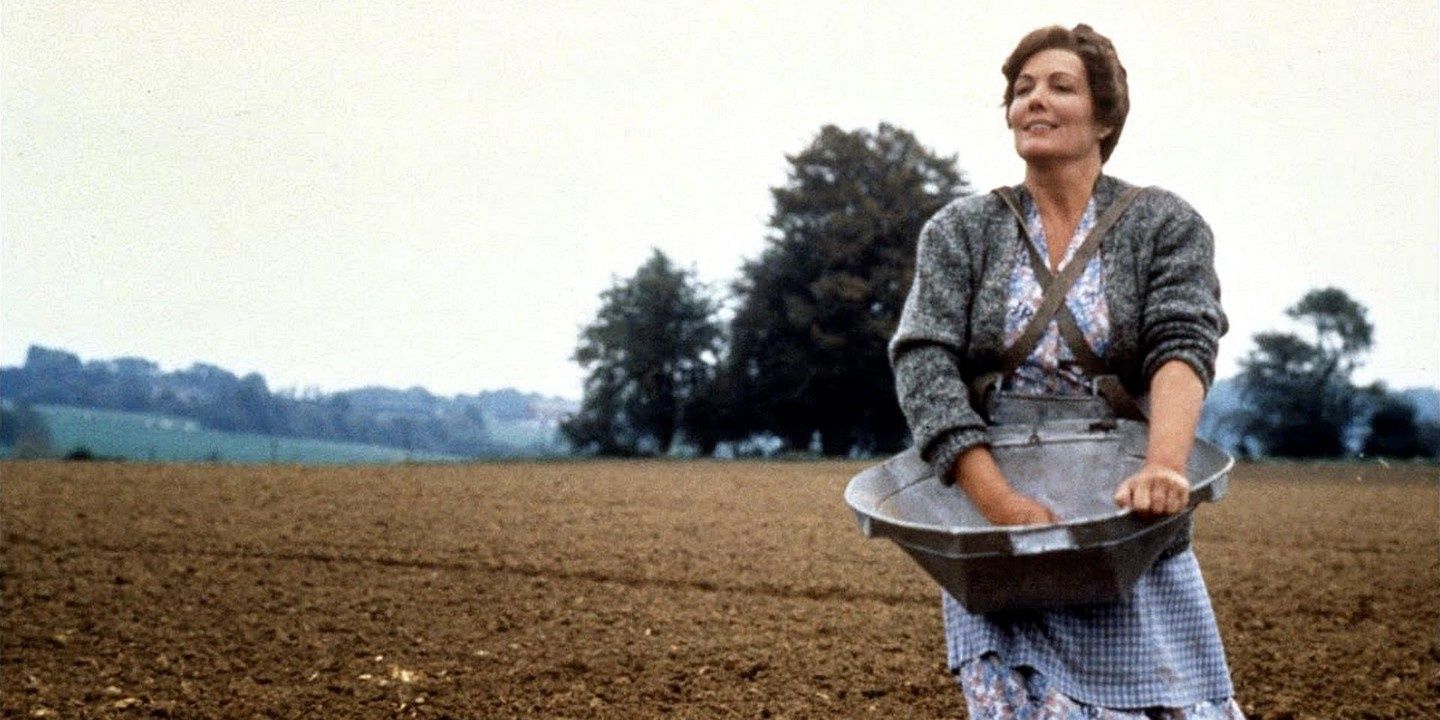
What is peculiar about Antonia's Line - apart from its BAFTA nomination for Best Film Not in the English Language - is that it was described as a "feminist fairy tale" and is categorized as belonging to the feminist film genre which was closely associated with the late 1960s-1970s feminist movement.
The story follows a woman named Antonia who returns to her Dutch hometown and established a matriarchal community. The film tackles a variety of topics that are still very relevant today: death, religion, sex, intimacy, lesbianism, friendship, and love.
1 Sundays and Cybele (1962) - 44%

At the moment, Sundays and Cybele is not just the lowest-ranking Best Foreign Picture winner, but it is also the only "rotten" film in the category. Perhaps the biggest complaint you will hear from critics is that it lacks substance and won the Academy Award only because of the cinematography.
Sundays and Cybele is based on a novel by Bernard Eschasseriaux who also co-wrote the screenplay. The film tells the tragic story of two unlikely friends: a young girl and an emotionally disabled veteran of the French Indochina War.
from ScreenRant - Feed https://ift.tt/3cauObR

0 comments:
Post a Comment